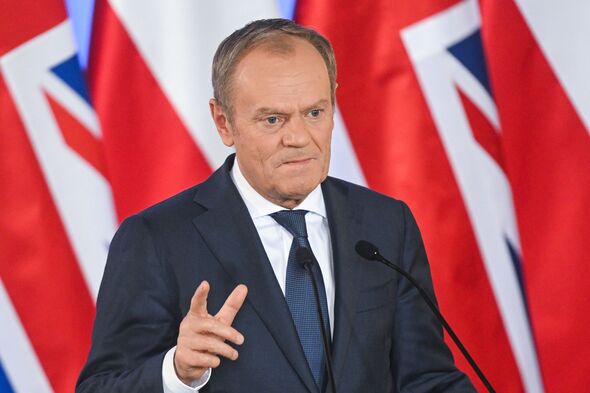Poland‘s Prime Minister Donald Tusk made a bold claim on Wednesday as the country marked two decades as part of the European Union.
He vowed to accelerate Poland’s economic growth, potentially leading to a higher GDP per capita than that of Brexit Britain within five years.
“And I promise it: on the 25th anniversary, Poles will be richer than Brits. It’s better to be in the European Union,” Tusk said, underscoring his strong belief in the benefits of EU membership.
Tusk’s statement comes as Poland celebrates 20 years since joining the European Union, a period that has seen substantial economic growth and development. According to Finance Ministry data, Poland’s GDP has doubled since joining the EU in 2004.
The Polish Institute of Economics (PIE) reports that the country’s GDP is now 40 percent higher than it would have been without EU membership.
These statistics align with a larger trend of Eastern European countries experiencing significant economic gains as members of the EU.
Poland’s GDP per capita in purchasing power parity terms is projected to reach 99.6 percent of the EU average by 2033, a remarkable leap from just 51.5 percent in 2004, when it was the third lowest in the EU, according to estimates from Credit Agricole Bank Polska.
One year ago, analysts for the British Labour Party noted that if current trends continued, the UK’s GDP would be about £480 (€562) less than Poland’s by 2030.
Keir Starmer, the Labour Party leader, emphasised that while the UK was lagging, its European neighbours, including Poland, were becoming wealthier. He pointed to World Bank data showing average economic growth between 2010 and 2021 was 0.5 percent for the UK and 3.6 percent for Poland.
Tusk’s claim is not just a boast but a reflection of his government’s commitment to continued economic growth within the EU framework. While his remarks may raise eyebrows in the UK, especially after the contentious Brexit referendum, they resonate with many Poles who have seen their country’s fortunes improve significantly over the past two decades.
